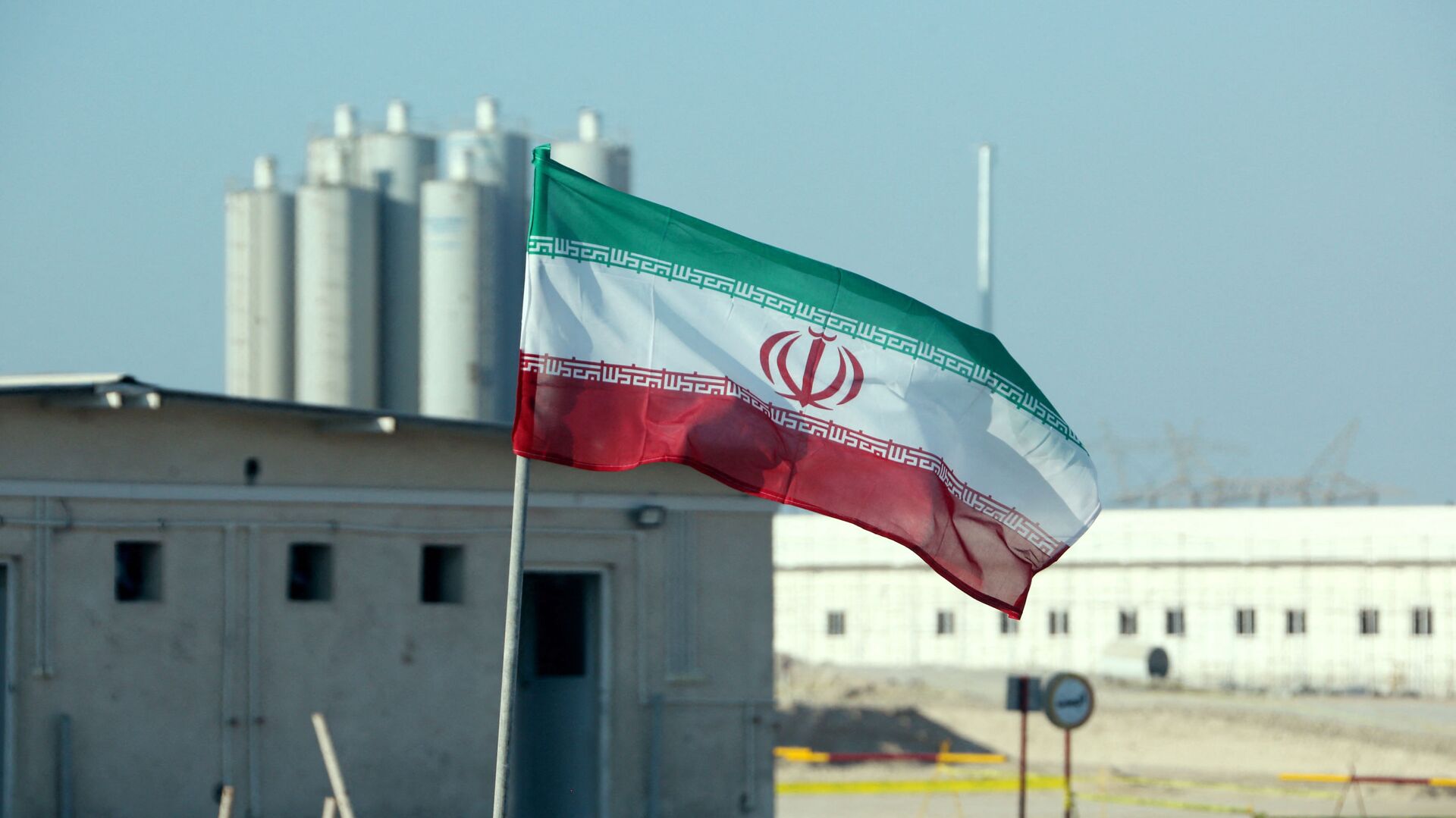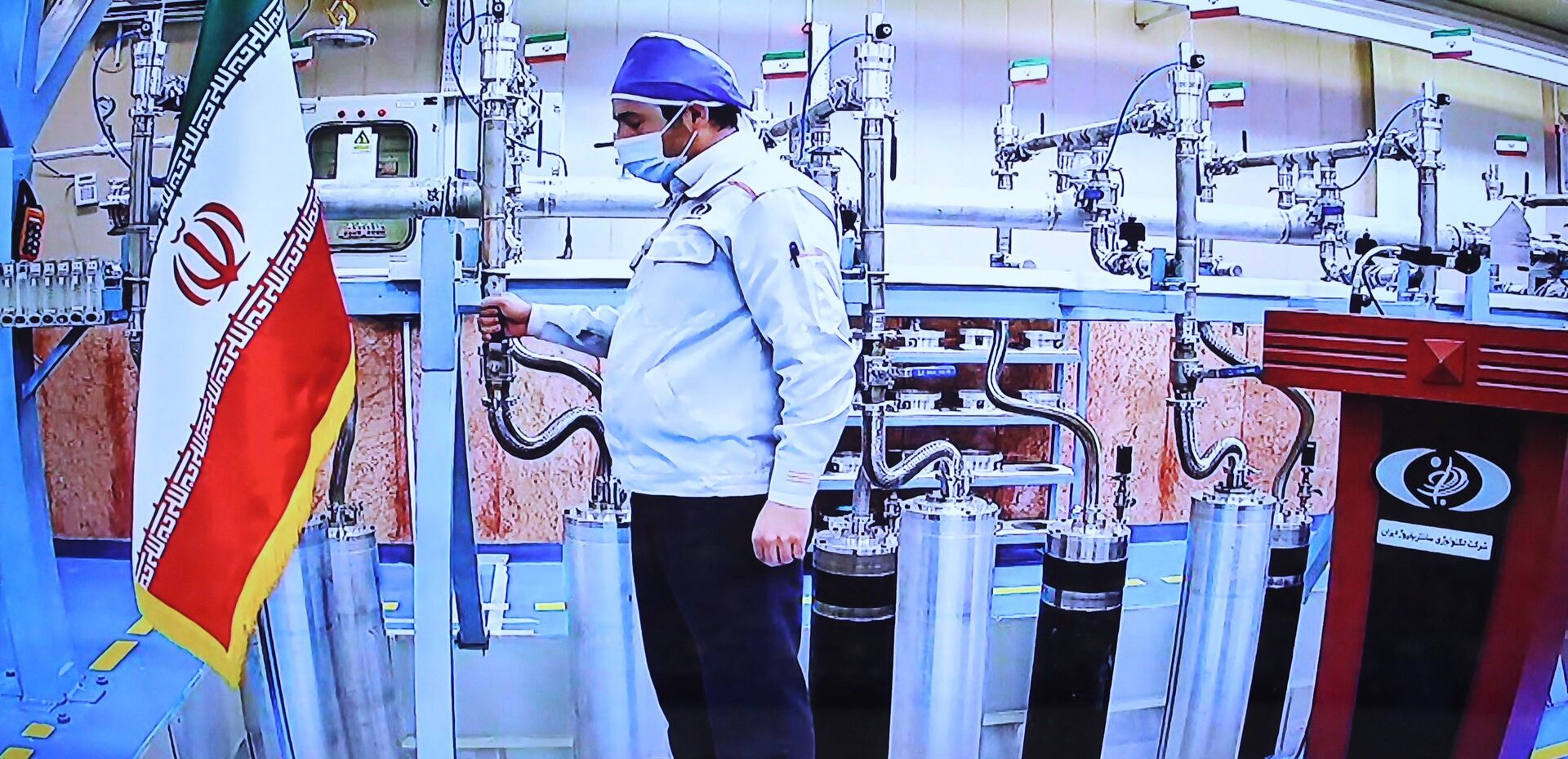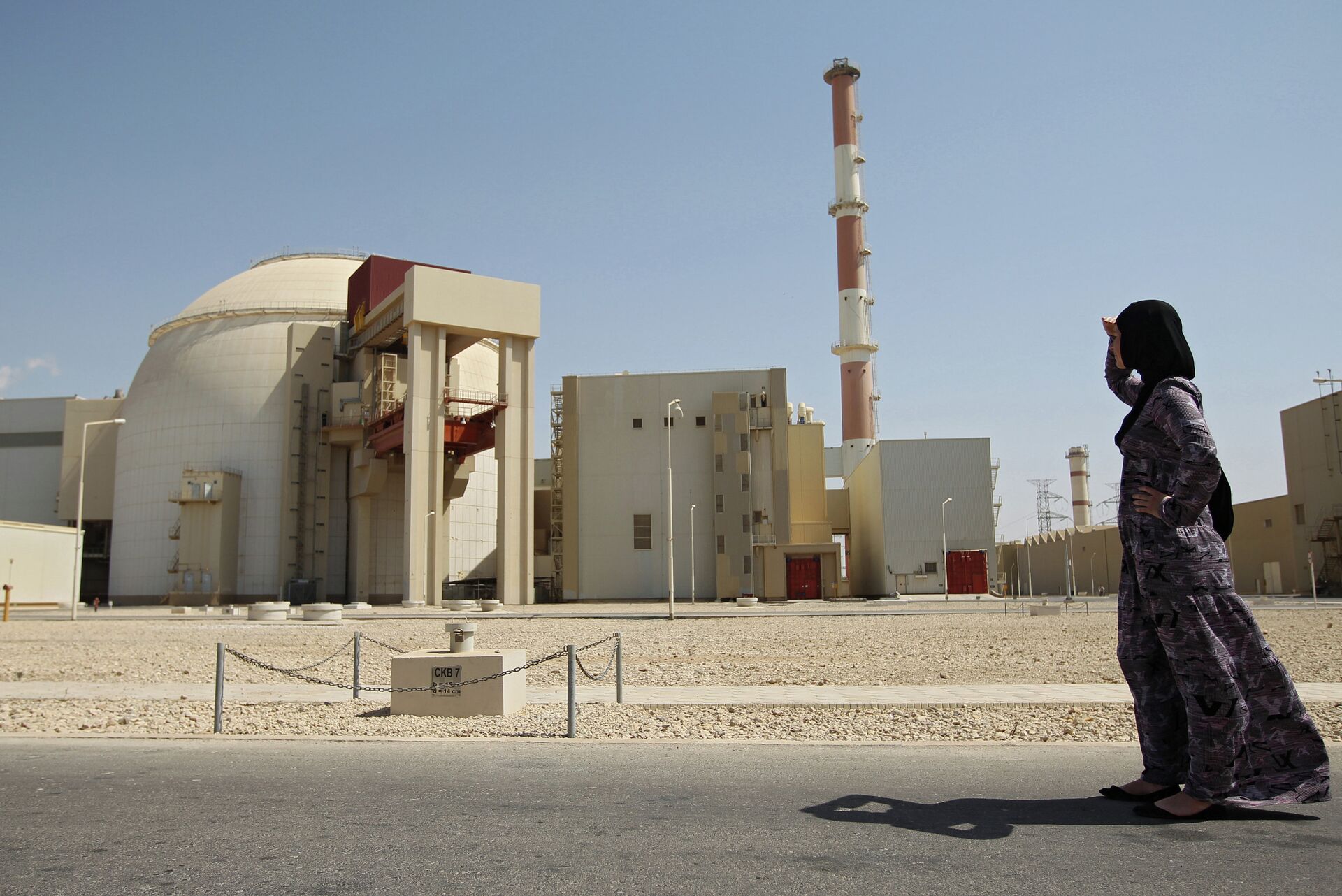Iran to Allow IAEA Monitors to Service Nuclear Site Cameras as Talks on Reviving Nuclear Deal Stall
13:21 GMT 12.09.2021 (Updated: 13:40 GMT 12.09.2021)

© AFP 2023 / ATTA KENARE
Subscribe
Iran’s newly-appointed nuclear chief Mohammad Eslami and Rafael Grossi, the head of the United Nations’ nuclear watchdog (IAEA), met on Sunday, easing a standoff between Tehran and the West that threatened to scupper further negotiations on reviving the Iran nuclear deal.
Iran has allowed international inspectors to service surveillance cameras at its nuclear sites and to continue filming there, reported AP.
"We agreed over the replacement of the memory cards of the agency's cameras," Mohammad Eslami, the newly appointed head of the Atomic Energy Organisation of Iran was quoted as saying by Iranian news agencies.
The announcement followed a meeting between Eslami and the visiting director-general of the International Atomic Energy Agency (IAEA), Rafael Grossi, in Tehran. Eslami, who replaced Ali Akbar Salehi in late August, was cited as describing the negotiations between Iran and the Vienna-based IAEA as “sheerly technical''.
"IAEA inspectors are permitted to service the identified equipment and replace their storage media, which will be kept under joint IAEA and AEOI seals in the Islamic Republic of Iran," said the two nuclear bodies in a joint statement.
There has been no further clarification regarding whether Iran would hand over copies of the older recordings, kept at its nuclear sites.
“The memory cards are sealed and kept in Iran according to the routine… New memory cards will be installed in cameras. That is a routine and natural trend in the agency's monitoring system,” Esmaili said.
Grossi, who was on his first visit to the country after Iran’s President Ebrahim Raisi took office in August, was cited as saying:
"I am glad to say that today were able to have a very constructive result, which has to do with the continuity of the operation of the agency’s equipment here… it is indispensable for us to provide the necessary guarantee and information to the IAEA and to the world that everything is in order.”
Monitoring ‘Seriously Undermined’
The announcement comes ahead of a meeting of the Vienna-based IAEA’s board of governors slated for September 13. Western powers had been arguing for Tehran to be censured over the gathering over its “lack of cooperation” with international inspectors.
The IAEA told member states in its confidential quarterly report cited by Western news agencies on 7 September that verification and monitoring activities have been “seriously undermined'' since February by Iran's refusal to allow inspectors access to their monitoring equipment for servicing.

A handout picture provided by the Iranian presidential office on April 10, 2021, shows a grab of a videoconference screen of an enginere inside Iran's Natanz uranium enrichment plant, shown during a ceremony headed by the country's president on Iran's National Nuclear Technology Day, in the capital Tehran
© AFP 2023 / Iranian Presidency
The agency deplored the fact that the “continuity of knowledge” was declining over time and that would continue “unless the situation is immediately rectified by Iran”. It was emphasised that certain monitoring and surveillance equipment required immediate servicing after a period of three months.
Tensions were exacerbated in February 2021, when the Islamic republic threatened to halt IAEA inspections under the JCPOA, if sanctions were not removed. The parties entered into a three-month agreement on February 21st to continue some of the checks, further extending the agreements in May.
However, since May 22nd, Iran has denied the IAEA access to data collected by cameras inside nuclear facilities, and has threatened to delete videos of the past three months. The IAEA also said it estimated Iran’s stock of uranium, enriched to up to 60 percent fissile purity, to be at 10 kilograms. This represented an increase of 7.6 kilograms since May. Iran’s total stock of uranium is estimated at 2,441.3 kilograms as of August 30, the agency said.
Vienna Talks ‘Stalled’
In 2015, Iran signed the Joint Comprehensive Plan of Action (JCPOA, or the Iran nuclear deal) with the P5+1 group of countries (the United States, China, France, Russia, the United Kingdom - plus Germany) and the European Union. It required Iran to scale back its nuclear programme, which Tehran has always maintained was exclusively peaceful in nature, and severely downgrade its uranium reserves in exchange for sanctions relief, including lifting the arms embargo five years after the deal's adoption. The US unilaterally pulled out of the nuclear deal in 2018 under then-President Donald Trump, reimposing crippling sanctions on the country.
Iran has since responded by breaching some of the deal's core restrictions, like enriching uranium to a higher purity. The remaining signatories to the accord have sought to preserve it, while US President Joe Biden has said he is open to rejoining the pact. Accordingly. since April, the joint commission of the international nuclear deal has held sessions in Vienna in a bid to revive the accord, with the last round ending in June without a clear result.
Washington has demanded that Iran immediately comply with JCPOA provisions, while Tehran claims it is the US that must make the first concession, as it was first to leave the nuclear agreement. Negotiations stalled after a new Iranian president, Ebrahim Raisi, was elected in June. Iran has remained non-committal about returning to the talks, not abandoning negotiations, yet also “not in a hurry to return” to the table, Kayhan daily close to Supreme Leader Ali Khamenei’s office reported on Saturday.



